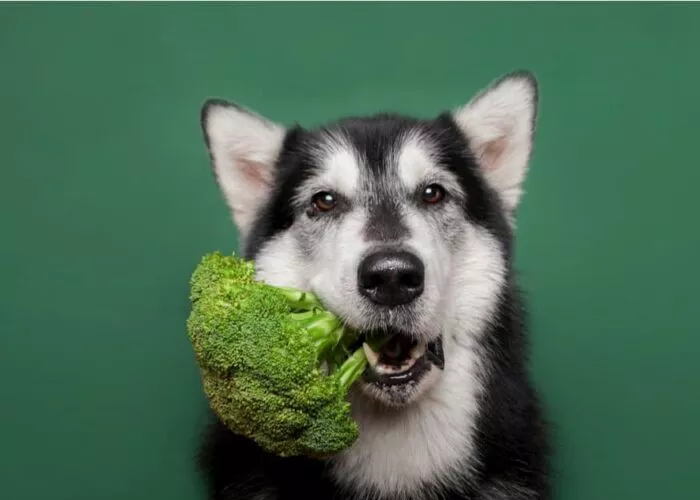As pet lovers, we all want what’s best for our furry companions. In recent years, there has been an increasing trend towards vegetarian or vegan diets for humans, and some pet owners are considering applying the same concept to their dogs. But the question remains: is feeding your dog a vegetarian diet safe? To answer this, we need to look closely at a dog‘s natural nutritional requirements and how a vegetarian diet can or cannot meet them.
A Dog’s Natural Nutritional Needs
Dogs are descendants of wolves, which are carnivores by nature. Their digestive systems have evolved over thousands of years to process meat – based diets. Protein is a crucial nutrient for dogs. They require a high – quality source of protein to maintain healthy muscles, skin, and organs. In the wild, wolves obtain this protein from the meat of their prey. The amino acids in animal – based proteins are essential for a dog’s body to function properly. For example, taurine, an amino acid found abundantly in animal – derived foods like meat and fish, is vital for a dog’s heart health, vision, and reproductive function. A deficiency in taurine can lead to serious health problems such as dilated cardiomyopathy (DCM), a potentially life – threatening heart condition.
Fats are another important component of a dog’s diet. They provide energy, help with the absorption of fat – soluble vitamins (A, D, E, and K), and contribute to a healthy coat and skin. Animal – based fats in particular offer a balanced profile of fatty acids that are beneficial for a dog’s overall well – being.
Pros and Cons of a Vegetarian Diet for Dogs
Pros
Ethical and Environmental Reasons: For some pet owners, choosing a vegetarian diet for their dog is driven by ethical concerns about animal welfare or a desire to reduce their environmental footprint. By not feeding their dogs meat, they feel they are making a positive impact in these areas.
Availability of Nutrients: With proper planning, it is possible to provide a vegetarian diet that meets a dog’s nutritional needs. There are plant – based sources of protein such as soy, lentils, chickpeas, and quinoa. These can be carefully combined to create a balanced amino – acid profile. Additionally, plant – based foods can provide vitamins, minerals, and fiber. For example, leafy greens are rich in vitamins A and K, while carrots are a good source of vitamin A.
Cons
Protein Quality: While there are plant – based protein sources, they often do not contain the complete set of essential amino acids that dogs need in the same proportions as animal – based proteins. This means that more careful formulation and potentially supplementation are required to ensure a dog gets all the necessary amino acids.
Vitamin and Mineral Deficiencies: Dogs need certain vitamins and minerals that are more readily available in animal – based foods. Vitamin B12, for instance, is almost exclusively found in animal products. A lack of vitamin B12 can lead to anemia, neurological problems, and digestive issues in dogs. Calcium and iron are also nutrients that can be more challenging to obtain in adequate amounts from a vegetarian diet. Calcium is crucial for strong bones and teeth, and iron is necessary for oxygen transport in the blood.
How to Safely Feed a Vegetarian Diet to Your Dog
If you still decide to feed your dog a vegetarian diet, it is essential to do it right.
Consult a Veterinarian or Animal Nutritionist: Before making the switch, seek professional advice. A veterinarian or a qualified animal nutritionist can help you design a diet plan that meets your dog’s specific needs based on their age, breed, size, and activity level. They can also recommend appropriate supplements to fill in any nutritional gaps.
Choose High – Quality Plant – Based Ingredients: Look for high – quality plant – based protein sources and make sure to include a variety of them in your dog’s diet. For example, a combination of soy, beans, and grains can provide a more complete amino – acid profile than relying on just one source.
Consider Supplements: As mentioned earlier, supplements may be necessary. A vitamin B12 supplement is almost always required for dogs on a vegetarian diet. Calcium and iron supplements may also be needed, depending on the specific diet plan. However, it’s important not to over – supplement, as this can also lead to health problems.
Monitoring Your Dog’s Health on a Vegetarian Diet
Regularly monitor your dog’s health when they are on a vegetarian diet. Keep an eye on their weight, coat condition, energy levels, and overall behavior. If you notice any signs of weight loss or gain, a dull coat, lethargy, or changes in appetite or digestion, it could be a sign that the diet is not meeting their nutritional needs. Take your dog for regular check – ups at the veterinarian, who can perform blood tests and other diagnostic procedures to assess their overall health and detect any potential nutritional deficiencies early.
Conclusion
In conclusion, while it is possible to feed a dog a vegetarian diet safely, it requires careful planning, professional guidance, and close monitoring. The natural nutritional requirements of dogs, which are rooted in their carnivorous ancestry, mean that a vegetarian diet is not without its challenges. By understanding these challenges and taking the necessary steps to address them, you can make an informed decision about whether a vegetarian diet is right for your furry friend. Remember, the ultimate goal is to ensure your dog’s health and well – being, and sometimes the traditional meat – based diet may be the best option for that.
Related topics


